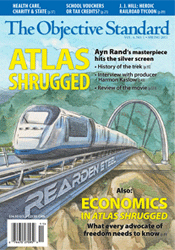NPR has a fascinating report on China which involves collectivism and the virtue of the profit-motive. From the report:
In 1978, the farmers in a small Chinese village called Xiaogang gathered in a mud hut to sign a secret contract. They thought it might get them executed. Instead, it wound up transforming China’s economy in ways that are still reverberating today.
The contract was so risky — and such a big deal — because it was created at the height of communism in China. Everyone worked on the village’s collective farm; there was no personal property.
“Back then, even one straw belonged to the group,” says Yen Jingchang, who was a farmer in Xiaogang in 1978. “No one owned anything.”
At one meeting with communist party officials, a farmer asked: “What about the teeth in my head? Do I own those?” Answer: No. Your teeth belong to the collective.
In theory, the government would take what the collective grew, and would also distribute food to each family. There was no incentive to work hard — to go out to the fields early, to put in extra effort, Yen Jingchang says.
“Work hard, don’t work hard — everyone gets the same,” he says. “So people don’t want to work.”
They defied the system and made a secret contract to practice capitalist principles. The result was fantastic. “At the end of the season, they had an enormous harvest: more, Yen Hongchang says, than in the previous five years combined.”
Their self-interested work was creating abundance and prosperity; The Communist Party took notice.





